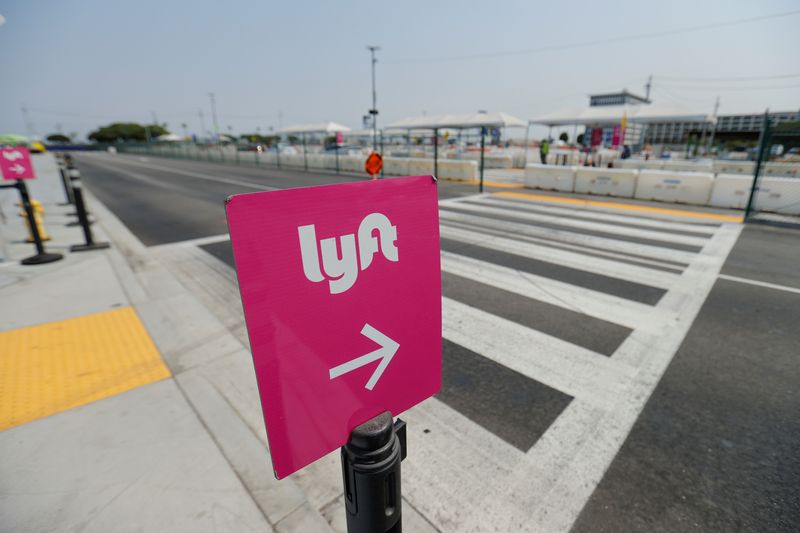[ad_1]
By Nate Raymond
BOSTON (Reuters) -The Massachusetts top court on Thursday cleared the way for voters in the state to decide whether drivers for app-based companies like Uber Technologies (NYSE:) and Lyft (NASDAQ:) should be classified as independent contractors who would be entitled to some new benefits but would not be legally employees.

The Massachusetts Supreme Judicial Court rejected a labor-supported challenge to an industry-backed coalition’s proposal to cement the drivers as contractors. But it also said it would allow a dueling ballot measure that would allow the drivers to unionize to move forward.
The decision came ahead of closing arguments set for Friday in a trial in a lawsuit pursued by the state’s Democratic attorney general, Andrea Joy Campbell, accusing Uber and Lyft of misclassifying their drivers as contractors, not employees.
Should the industry fail in court and at the ballot box, Uber and Lyft could face a sweeping overhaul of their business models, one that lawyers for the companies have said could force them to cut or end service in Massachusetts.
Using contractors can cost companies as much as 30% less than hiring employees, various studies showed.
Uber and Lyft, along with app-based delivery services Instacart (NASDAQ:) and DoorDash (NASDAQ:), have spent millions of dollars to support the ballot proposal that would cement the status of their drivers as contractors under state law.
Flexibility and Benefits for Massachusetts Drivers, a ballot measure committee whose contributors include the four ride-share companies, is also proposing setting an earnings floor for app-based drivers and providing them healthcare stipends, occupational accident insurance and paid sick time.
They’re pushing it after the industry through a $200 million campaign in 2020 convinced California voters to pass a measure similar to the one backed by the companies in Massachusetts, solidifying drivers as independent contractors with some benefits. Litigation challenging that measure is ongoing.
The Massachusetts court in 2022 blocked a similar industry-backed ballot measure. To hedge its bets this time, supporters gathered signatures for five versions of their ballot question, only one of which they will put before voters on Nov. 5. Final signatures for the ballot measure will be turned in July 2.
A separate proposed ballot measure supported by the Service Employees International Union’s Local 32BJ seeks to ask voters to allow Uber and Lyft drivers to unionize.
Conor Yunits, the industry-backed campaign’s spokesperson, called Thursday’s ruling „a huge win and a great day for rideshare and delivery drivers.”
The court rejected a challenge by a labor-affiliated coalition called Massachusetts Is Not For Sale to Campbell’s certification of the industry’s question for potential inclusion on the ballot. The group said the proposal wrongly addressed not one policy question but several bundled together.

But Justice Gabrielle Wolohojian, writing for a 6-0 court, said the provisions in even the broadest of the five proposals „share a single common purpose: establishing and defining the relationship between the drivers and the companies.”
Chrissy Lynch, the president of the Massachusetts chapter of the union AFL-CIO and chair of Massachusetts Is Not For Sale, called the ruling „an unprecedented step back for the voters, workers, consumers, taxpayers and law-abiding businesses of the Commonwealth of Massachusetts, which should not be for sale.”
[ad_2]
Source link

